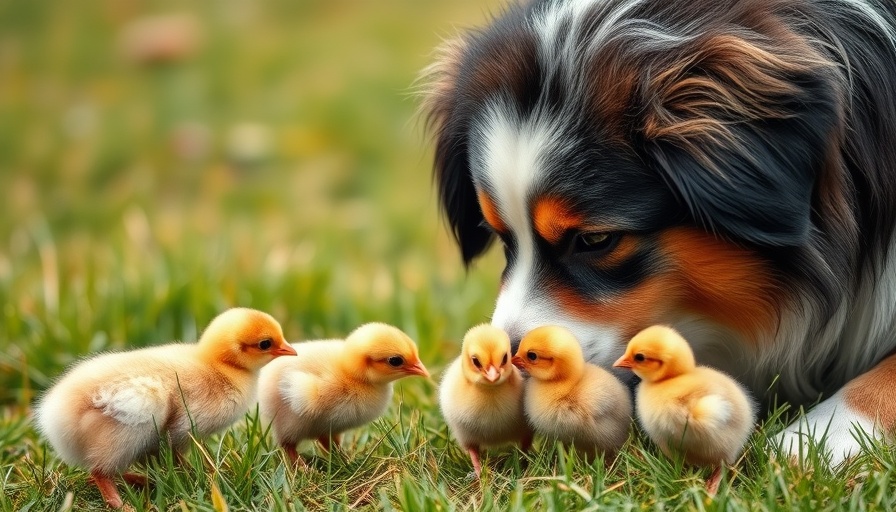
Understanding Dog Breeds and Their Relationships with Other Animals
Dogs are cherished companions in countless households, and just like humans, their social dynamics with other animals can vary significantly. Some breeds thrive in multi-pet environments while others prefer solitude or display signs of territorialism. Understanding these behaviors is crucial for potential dog owners, especially those who already have other pets.
Top Dog Breeds That Love Other Animals
When considering dogs that exhibit friendly behaviors toward other animals, there are several breeds that consistently stand out:
1. Golden Retriever
Golden Retrievers are often viewed as family-oriented dogs because of their gentle temperament. These sociable canines aren't just friendly toward humans, they are known to approach other companions—be they dogs, cats, or smaller pets—with ease. Their adaptability allows them to coexist peacefully in a multi-pet household, promoting harmony for everyone involved.
2. Labrador Retriever
Much like Golden Retrievers, Labs have an outgoing nature that makes them highly social. They love the company of any other animals around them, thanks to their playful spirit and patience, particularly with smaller pets. This breed is a fantastic choice for families where pets interact frequently.
3. Beagle
Beagles are inherently pack animals, a trait that originated from their past as hunting companions. This breed thrives on companionship and is generally non-aggressive, making them suitable for homes with both small and large pets, provided they receive proper introductions to potential new friends.
4. Cavalier King Charles Spaniel
These affectionate puppies are loved for their calm demeanor and friendly nature. Cavalier King Charles Spaniels are well-mannered and adapt to various situations, ensuring that they can comfortably share a space with other pets.
5. Cocker Spaniel
Cocker Spaniels are sociable dogs that flourish in the presence of various other pets. Their gentle nature makes them an ideal addition to homes already filled with animals. Just like other breeds mentioned, they require falling in love with a diverse environment for optimal happiness.
8 Breeds That May Not Play Well with Others
On the flip side, certain breeds are known for their less friendly interactions with other pets. This can stem from a predatory instinct, territorial behavior, or innate characteristics that lead them to prefer solitude.
1. Chihuahua
This smaller breed often feels threatened by larger animals. Given their territorial tendencies, Chihuahuas can display aggressive behaviors, making them less suitable for homes with numerous pets.
2. Akita
Akitas are known for their loyalty but possess a strong prey drive and territorial instincts. These dogs may see other pets as threats or competition for resources.
3. Shar Pei
While this breed is quite devoted to their human family, Shar Peis tend to be more reserved around other animals, which can lead to conflicts if not handled correctly.
4. Fox Terrier
This breed has high energy and predatory instincts, sometimes finding it challenging to coexist with smaller pets.
5. Rottweiler
Rottweilers are often misunderstood due to their size and reputation. They can be very affectionate but require ample training and socialization to prevent aggression towards other pets.
Future Insights Into Pet Ownership Dynamics
As families evolve, so do their pet ownership trends. The growing movement towards adopting multiple pets aims to create engaging and diverse households. Understanding which breeds are compatible will continue to be significant as more families embrace the idea of a multi-pet home. This trend reflects societal changes as families become more inclusive of different types of animals.
Why Knowing Dog Breed Behavior Matters for Pet Owners
Dog owners who recognize their pet's natural instincts will likely experience a more harmonious household. Choosing breeds that thrive alongside other animals fosters companionship, reduces stress, and enhances the living environment.
Tips for Integrating New Pets Smoothly
To successfully introduce a new pet into your home, consider the following tips:
- Conduct proper introductions: Allow pets to meet in a neutral setting to avoid territorial conflicts.
- Supervise interactions initially: Always supervise early interactions to monitor behavior closely.
- Encourage positive reinforcement: Reward good interactions with treats to foster positive relationships.
- Know your breed: Understanding the specific needs and behaviors of each breed can lead to avoiding common mistakes.
Conclusion: Choose Wisely for Happy Lives
Ultimately, understanding the relational dynamics of dog breeds can be invaluable for current and potential pet owners alike. By recognizing which breeds are friendly toward other animals and which are not, families can create more balanced and enjoyable living experiences. If you are considering adding a furry friend to your home, prioritize their compatibility not just with you, but also with the existing animals in your household.
Let’s embrace the diverse and beautiful world of dogs together!
 Add Row
Add Row  Add
Add 




 Add Row
Add Row  Add
Add
Write A Comment